This comprehensive guide provides in-depth analysis of George Orwell’s Animal Farm, exploring themes, characters, and historical context. It aids students in critical understanding and essay preparation;
1.1 Overview of George Orwell’s Animal Farm
Animal Farm, a novella by George Orwell, is a political allegory that critiques totalitarian regimes through the story of barnyard animals rebelling against their oppressive owner. The narrative explores themes of power corruption, betrayal, and the loss of idealism, offering a timeless commentary on human nature and societal structures. Orwell’s vivid characters and symbolic events provide profound insights into historical and universal truths.
1.2 Importance of Old Major’s Speech
Old Major’s speech is pivotal as it unites the animals and ignites the rebellion against Mr. Jones. He identifies humans as the source of their suffering and envisions a future where animals live freely, inspiring hope and unity. His words lay the foundation for Animalism, emphasizing equality and self-reliance, which later becomes the guiding philosophy of the farm.
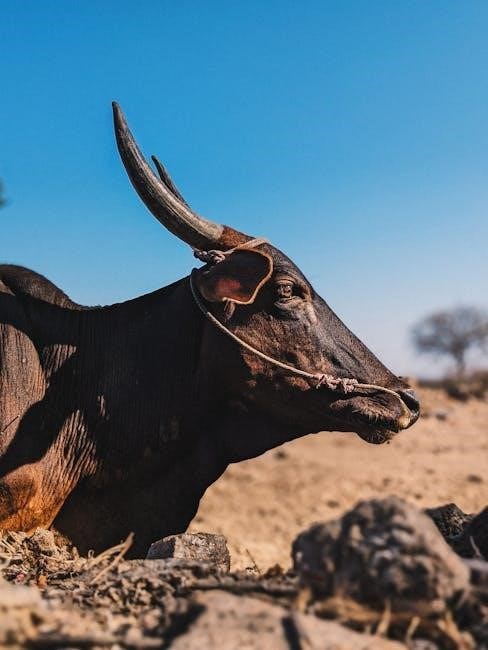
1.3 The Source of the Animals’ Misery and Slavery
Old Major identifies humans as the root cause of the animals’ suffering, exploiting their labor while reaping the benefits. The animals’ misery stems from oppression and lack of unity, enabling their enslavement. This revelation unites them, sparking rebellion and the pursuit of a better future, free from human tyranny and exploitation.
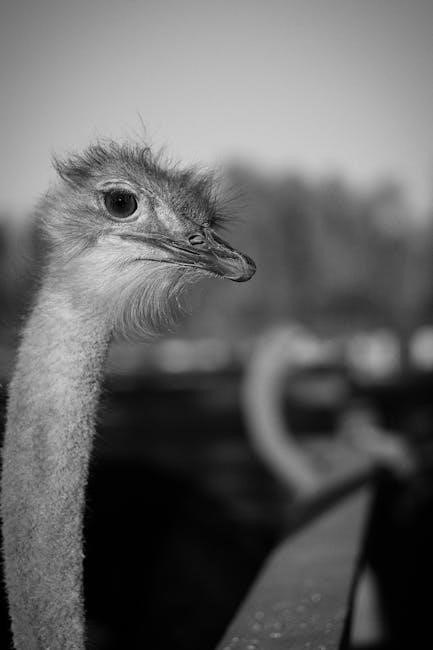
Plot Summary and Key Events

The story begins with a rebellion led by the animals against Mr. Jones, establishing Animalism. Key events include the creation of the Seven Commandments, power struggles between Napoleon and Snowball, and Napoleon’s eventual takeover, leading to the corruption of the farm’s ideals.
2.1 The Rebellion and Establishment of Animalism
Old Major’s speech ignites the rebellion, inspiring animals to overthrow Mr. Jones. They establish Animalism, a philosophy promoting equality and self-governance. The Seven Commandments are created, forming the foundation of their new society. This marks the beginning of a utopian experiment, showcasing the animals’ determination to create a fair and just community without human oppression.
2.2 The Seven Commandments and Their Significance
The Seven Commandments, painted on the barn wall, outline the principles of Animalism, emphasizing equality and unity among animals. They serve as a moral foundation, prohibiting traits like drunkenness and killing fellow animals. These commandments symbolize the animals’ commitment to a fair society, free from human exploitation, and act as a unifying force during the early stages of the rebellion.
2.3 The Rise of Napoleon and Snowball’s Expulsion
Napoleon’s rise to power begins with his secret training of dogs, symbolizing his manipulative tactics. His conflict with Snowball over leadership and farm policies escalates, leading to Napoleon expelling Snowball. This marks the consolidation of Napoleon’s authoritarian rule, undermining Animalism’s ideals and showcasing his willingness to eliminate opposition to maintain control and reshape the farm according to his vision.

Character Analysis
This section delves into the personalities and roles of key characters, including Old Major’s visionary leadership, Napoleon’s manipulative nature, Boxer’s unwavering dedication, and Benjamin’s skeptical wisdom.
3.1 Old Major: The Visionary
Old Major, a wise boar, inspires rebellion with his compelling speech, emphasizing unity and the need to overthrow oppressive humans. His vision of a utopian animal society sparks hope and motivates others to pursue freedom and self-governance, laying the foundation for the principles of Animalism.
3.2 Napoleon and Snowball: Leadership and Conflict
Napoleon and Snowball represent contrasting leadership styles, with Napoleon embodying authoritarian control and Snowball advocating democratic ideals. Their power struggle culminates in Snowball’s expulsion, showcasing Napoleon’s ruthless ambition. This conflict highlights the dangers of unchecked power and the manipulation of ideals, central to Orwell’s critique of totalitarian regimes.
3.3 Boxer: The Embodiment of Loyalty and Dedication
Boxer, a strong and dedicated horse, exemplifies loyalty and hard work in Animal Farm. His motto, “I will work harder!” reflects his commitment to the farm’s success. However, his unwavering dedication is exploited by the pigs, leading to his eventual betrayal. Boxer’s fate symbolizes the exploitation of the working class and the consequences of blind loyalty in totalitarian regimes.
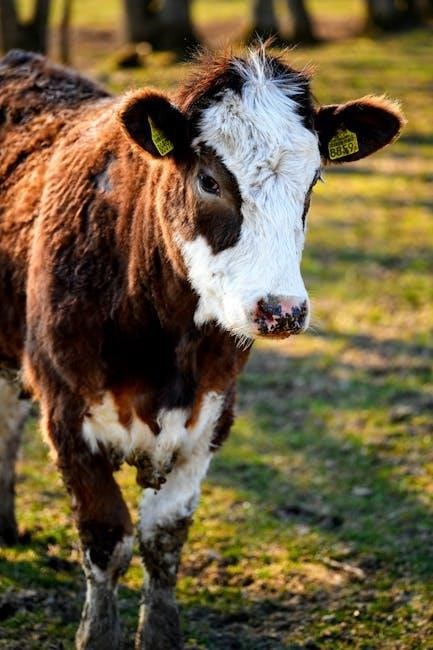
Themes and Symbolism
Orwell explores themes of totalitarianism, corruption, and betrayal through symbolic characters and events, highlighting the dangers of unchecked power and manipulation in society.
4.1 Totalitarianism and Corruption of Power
In Animal Farm, Orwell critiques totalitarianism through Napoleon’s rise to power. The pigs manipulate rules and propaganda, mirroring Stalin’s regime. Napoleon’s corruption transforms ideals into tyranny, highlighting how power corrupts even noble revolutions, leading to oppression and loss of freedom for the animals, echoing historical parallels with Soviet Russia;
4.2 The Betrayal of Idealism
Animal Farm illustrates the betrayal of idealism as the pigs abandon Old Major’s vision of equality. Their pursuit of power corrupts the original rebellion, transforming it into a system indistinguishable from the tyranny they initially opposed. This reflects Orwell’s warning about the dangers of ideological compromise and the erosion of revolutionary ideals.
4.3 The Role of Propaganda in Shaping Reality
Propaganda in Animal Farm is wielded by Squealer, who manipulates facts and language to justify the pigs’ actions. Using persuasive techniques, he distorts reality, making the animals question their perceptions. This manipulation ensures the pigs’ control, highlighting Orwell’s warning about the power of propaganda in shaping truth and maintaining totalitarian regimes.
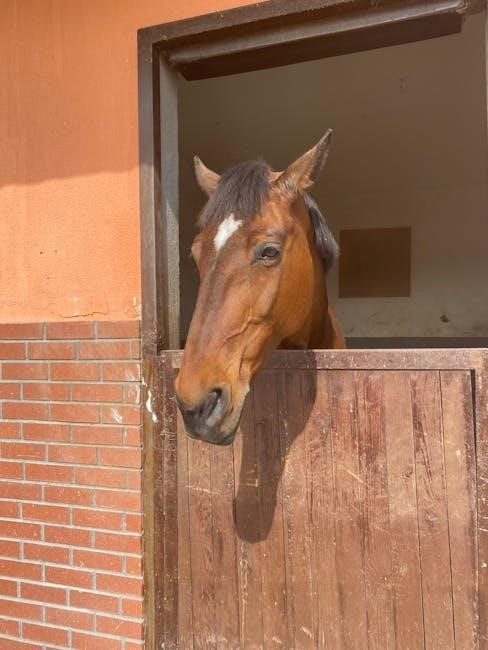
Study Questions and Answers
This section provides answers to key questions about Animal Farm, such as why the pigs struggled to convince animals of Animalism and the animals’ objections to their leadership.
5.1 Why Do the Pigs Convincing the Animals of Animalism Prove Difficult?
The pigs face difficulty convincing the animals due to their limited understanding and skepticism. Many animals lack education, making complex ideas hard to grasp. Additionally, some are loyal to Mr. Jones and fear change, while others doubt the pigs’ leadership capabilities and question their true motives behind Animalism.
5.2 What Are the Animals’ Objections to the Pigs’ Leadership?
The animals object to the pigs’ leadership due to perceived inequality and exploitation. They notice the pigs’ increasing privileges, such as better food and living conditions, which contradict the principles of Animalism. Additionally, the pigs’ authoritarian decisions and manipulation of the Seven Commandments lead to distrust and resentment among the other animals.
5.3 Short-Term and Long-Term Results of a Rebellion Against the Pigs
A rebellion against the pigs could lead to short-term chaos, with potential overthrow of corrupt leaders but likely resulting in confusion and power vacuums. Long-term, it might bring new leadership and improved conditions, but risks repeating cycles of oppression if ideals aren’t upheld, mirroring the novel’s themes of betrayal and power corruption.
Key Quotes and Their Significance
Key quotes from Animal Farm highlight themes of power, corruption, and betrayal, offering insight into characters’ motivations and the novel’s allegorical depth, reflecting Orwell’s warnings on totalitarianism.
6.1 Old Major’s Speech on Unity and Rebellion
Old Major’s speech unites the animals, inspiring rebellion against Mr. Jones. He emphasizes their collective misery under human oppression and calls for unity to overthrow their exploiters. His vision of a fair society sparks hope, urging the animals to rise against their enslavement and strive for freedom, setting the stage for the rebellion and the establishment of Animalism.
6.2 Napoleon’s Justification for the pigs’ Actions
Napoleon justifies the pigs’ actions by claiming they are responsible for the farm’s survival and prosperity. He argues that their leadership and intelligence are essential, manipulating the animals into accepting their dominance. This justification masks Napoleon’s authoritarian rule and exploitation, using fear and propaganda to maintain power while betraying the original ideals of equality and fairness.
6.3 Boxer’s Motto and Its Irony
Boxer’s motto, “I will work harder,” symbolizes his unwavering dedication to the farm’s success. However, the pigs exploit his loyalty, overworking him and discarding him when he becomes useless. This highlights the tragic irony of his devotion, as his efforts fail to improve his or the other animals’ lives under the oppressive regime.
Historical Context and Allegory
Orwell’s Animal Farm is a direct allegory of the Russian Revolution, with the pigs representing the Bolsheviks and the farm symbolizing Russia. The story mirrors key events like the 1917 Revolution and Stalin’s rise, highlighting Orwell’s warning against totalitarianism and its corrupting influence on power.
7.1 The Russian Revolution and Its Parallels to Animal Farm
Animal Farm mirrors the Russian Revolution, with Old Major symbolizing Lenin, whose ideals inspired rebellion. The pigs, led by Napoleon, represent the Bolsheviks, while the working-class animals reflect the proletariat. Events like the expulsion of Snowball parallel Trotsky’s exile, and the corruption of the pigs echoes Stalin’s regime, illustrating the dangers of authoritarian rule.
7.2 Orwell’s Warning About Totalitarian Regimes
Orwell’s Animal Farm serves as a cautionary tale about totalitarianism, highlighting how power corrupts and manipulates. The pigs’ gradual abuse of authority mirrors the rise of oppressive regimes, emphasizing Orwell’s warning about the dangers of unchecked power and the erosion of freedom. His work remains a timeless critique of authoritarianism and its impact on society.
Leadership and Power Dynamics
The pigs’ manipulation of power highlights their corrupting influence, transforming ideals into tyranny. Leadership dynamics reveal Orwell’s critique of authoritarian control and its destructive nature.
8.1 Napoleon, Snowball, and Squealer: A Comparative Analysis
Napoleon embodies authoritarian leadership, prioritizing power and control, while Snowball represents idealistic vision and intellectualism; Squealer, as a propagandist, manipulates truth to justify their actions, highlighting Orwell’s critique of power dynamics and manipulation in leadership roles.
8.2 The Corruption of Power and Its Impact on the Farm
The pigs’ abuse of power leads to exploitation and inequality, mirroring Orwell’s critique of totalitarianism. Napoleon and his cohorts manipulate resources and alter rules for personal gain, while Squealer’s propaganda justifies their actions. This corruption erodes the farm’s unity, transforming it into a dystopian society where ideals of equality are replaced by oppression and fear.
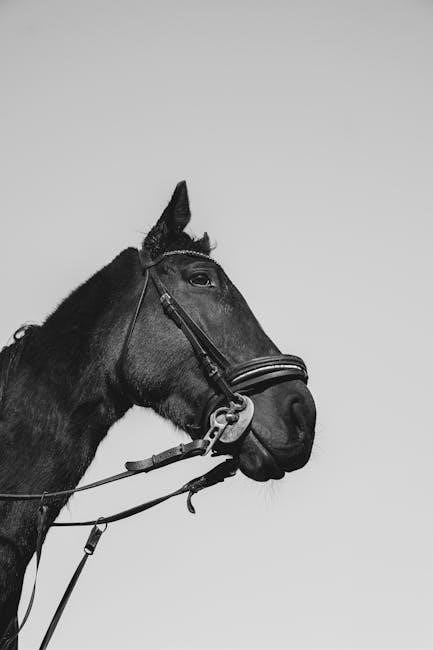
Moral Lessons and Teachings
George Orwell’s Animal Farm teaches the dangers of unchecked power and manipulation. It highlights the importance of education and critical thinking to prevent the erosion of integrity and equality, offering timeless lessons for societies.
9.1 The Importance of Education and Critical Thinking
Orwell emphasizes the necessity of education and critical thinking to prevent manipulation. The animals’ lack of awareness allows the pigs to exploit power, highlighting how education empowers individuals to discern truth from propaganda, fostering independence and resistance against oppressive systems. Critical thinking is vital to maintaining freedom and integrity in any society.
9.2 The Dangers of Blind Obedience
Orwell illustrates the dangers of blind obedience through the animals’ unquestioning acceptance of the pigs’ leadership. Boxer’s unwavering loyalty exemplifies this, leading to exploitation and corruption. The novel warns against uncritical acceptance of authority, highlighting how blind obedience erodes freedom and enables totalitarianism. Critical questioning is essential to prevent manipulation and maintain integrity in any system or society.
Essay Topics and Discussion Questions
Explore themes like totalitarianism, betrayal, and propaganda. Discuss the role of power dynamics and moral lessons. Analyze characters and their symbolic significance in Orwell’s allegory.
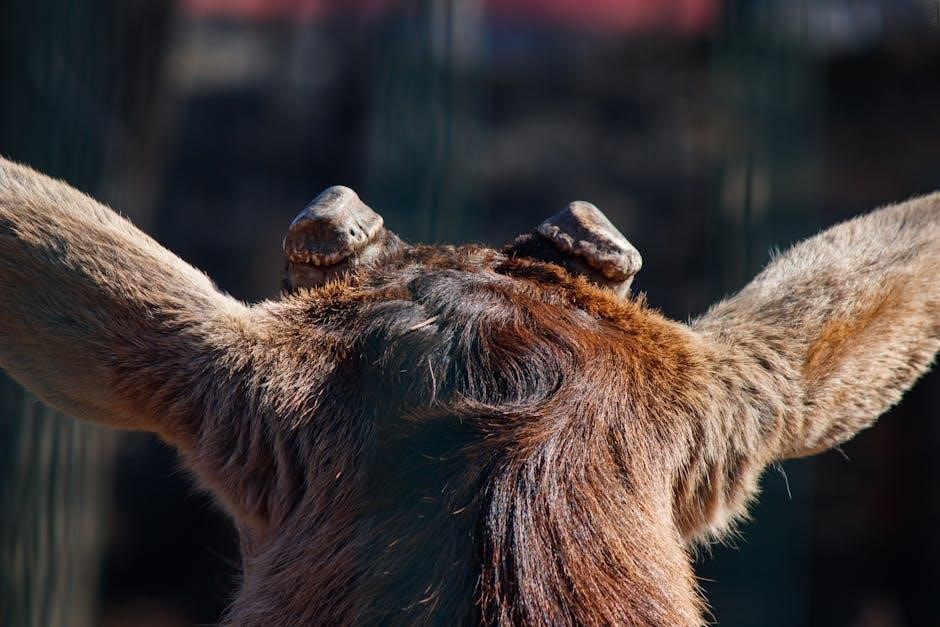
10.1 Analyzing the Theme of Betrayal in Animal Farm
Betrayal is a central theme in Animal Farm, evident in the pigs’ corruption of power and manipulation of the rebellion. Old Major’s vision of equality is exploited, leading to the exploitation of fellow animals. This betrayal results in distrust, oppression, and the ultimate failure of the animals’ revolutionary ideals, highlighting Orwell’s warning about the dangers of unchecked authority and deceit.
10.2 The Role of Propaganda in Shaping the Animals’ Perceptions
Propaganda plays a crucial role in manipulating the animals’ perceptions in Animal Farm. Squealer, as Napoleon’s propagandist, distorts facts, rewrites history, and alters the Seven Commandments to justify the pigs’ actions. This manipulation fosters loyalty and suppresses dissent, highlighting Orwell’s critique of how totalitarian regimes use propaganda to control public opinion and maintain power over the masses.
Animal Farm remains a timeless allegory, cautioning against totalitarianism and the corruption of power. Its themes of betrayal, propaganda, and the erosion of idealism resonate universally, offering enduring lessons on the dangers of unchecked authority and the importance of critical thinking in preserving freedom and equality.
11.1 Recap of Key Themes and Lessons
Animal Farm explores themes of totalitarianism, corruption, and the betrayal of idealism. It highlights the dangers of unchecked power, manipulation, and the erosion of freedom. The novel underscores the importance of education, critical thinking, and unity in preserving equality and justice, while warning against blind obedience and the exploitation of power by those in authority.
11.2 The Relevance of Animal Farm in Modern Society
Animal Farm remains a timeless allegory, offering insights into modern societal issues like political manipulation, propaganda, and authoritarianism. Its themes of power corruption, exploitation, and the erosion of freedom resonate with contemporary debates on governance, media control, and the dangers of unchecked authority, making it a vital text for understanding human nature and societal dynamics today.
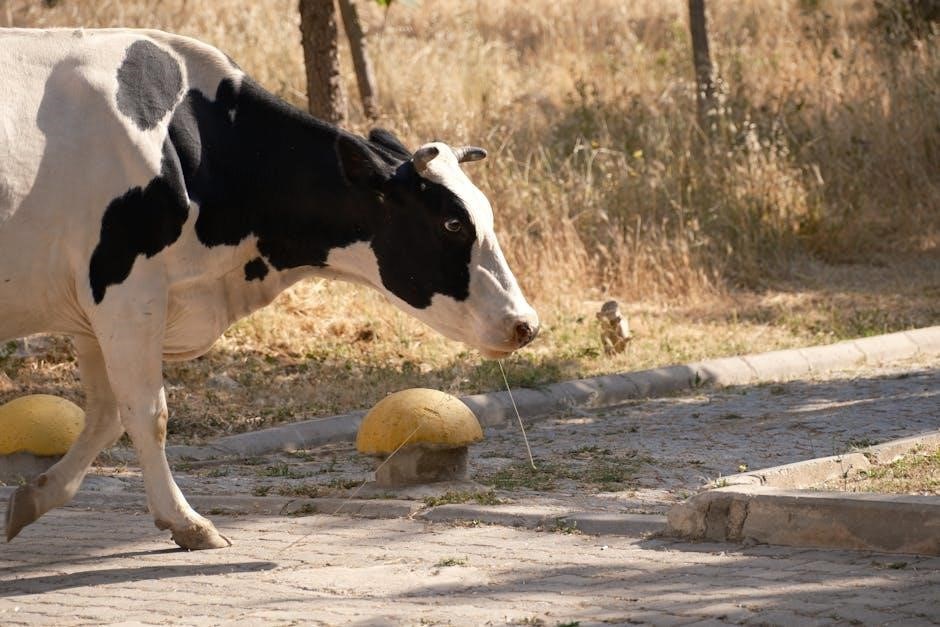
Further Reading and Resources
Explore recommended books, articles, and online resources for deeper analysis of Animal Farm. These materials provide additional insights, study guides, and educational tools for comprehensive understanding.
12.1 Recommended Books and Articles on Animal Farm
For deeper insights, explore SparkNotes, CliffsNotes, and critical essays on themes like totalitarianism. Academic articles from JSTOR and scholarly journals offer detailed analyses of Orwell’s allegory and its historical context.
12.2 Online Resources for Deeper Analysis
Explore online platforms like SparkNotes, LitCharts, and the Orwell Foundation for detailed analyses. These resources offer summaries, character studies, and essay topics, enhancing your understanding of Animal Farm. Academic databases and educational websites provide additional insights into themes and historical context, aiding in deeper critical analysis and essay writing.



0 Comments